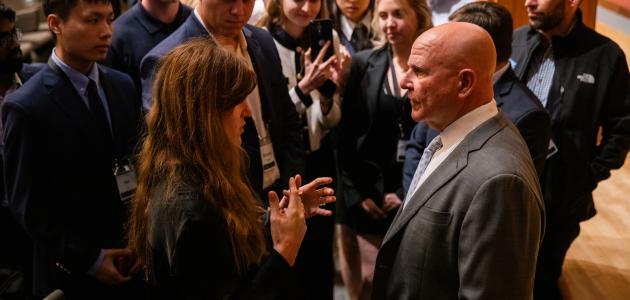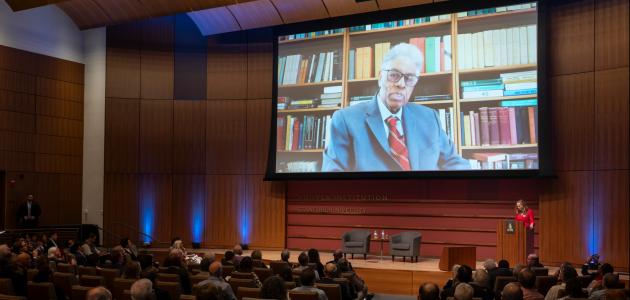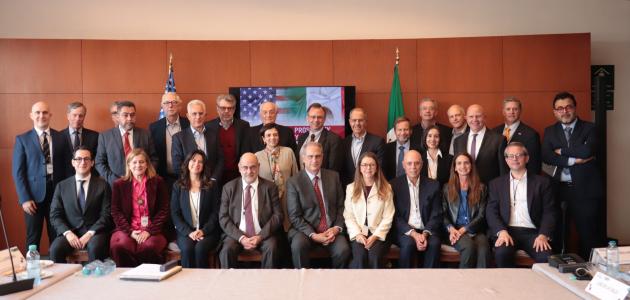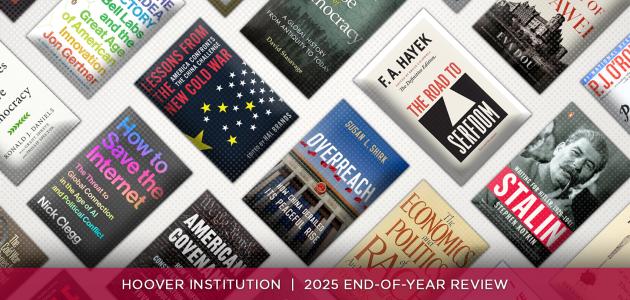
Marshaling the energies of bright scholars in the early stages of their academic careers, the W. Glenn Campbell and Rita Ricardo-Campbell National Fellows Program has become a pillar of Hoover research.
Pausing in their regular academic commitments to spend a year in residence at Hoover, national fellows work closely with the Hoover fellowship and the larger intellectual communities of Stanford and Silicon Valley. Representing diverse academic backgrounds, affiliations, and disciplines, national fellows infuse Hoover scholarship with new ideas and approaches. In addition, with their time protected to focus on research and publishing, national fellows are able to accelerate their careers and help Hoover solve important policy challenges.
Carlo Prato, a participant in the 2015–16 class of Hoover national fellows, offers an excellent example of what the program makes possible.
Newly appointed as an assistant professor in the Department of Political Science at Columbia University, Prato’s work examines how political and electoral institutions affect policy and economic outcomes. His most recent scholarly article, “Campaign Cost and Electoral Accountability,” coauthored with Stephen Wolton of the London School of Economics and recently published in Political Science Research and Methods, looks at rising campaign spending and the heightened importance of money in election cycles.
In a recent interview at Hoover, Prato discussed the methods and findings presented in the paper and how they can inform debates regarding campaign finance reform.
“We think of competition as a central way by which voters can discipline elections,” explained Prato. “Voters use elections to pit different political options against one another and get politicians to promise to do things that are in their interest.”
“In the last few years, however, many people have been increasingly concerned about the fact that elections have become more and more expensive, and they implicitly assume that more-expensive elections are going to weaken competitive mechanisms.”
Prato and Wolton developed a mathematical model of the incentives and preferences facing voters and candidates during election cycles and used game theory to explore how changes in the cost of campaigning affect their behavior. The model reveals that the effect of campaign spending on electoral competition depends on the lopsidedness of an election: a more complex relationship than commonly understood. Going further, the authors demonstrate situations in which increased campaign costs positively affect political accountability, campaign platforms, and voter welfare.
“When an election is expected to be very close, it is indeed true that higher costs of campaigning are going to make it harder for voters to elicit commitment from a candidate to do things they like,” explained Prato.
“In contrast, in a district in which most voters lean toward a certain party, an increase in the campaign cost can have a beneficial, pro-competitive effect, which we call the rebalancing effect.” In such contests, according to Prato, “the front-runner has little incentive to make clear commitments toward the voters, since her or his electoral chances are already very good. The trailing candidate, on the other hand, can only win by making strong promises to voters and widely advertising them during the campaign.”
In such situations, according to Prato, “increased campaign costs are basically going to rebalance the playing field.”
“Many prominent politicians have pledged to enact legislation that puts limits on campaign contributions,” said Prato. “But what we show is that sometimes limits, or artificially decreasing the costs of campaigns, or subsidizing a candidate’s political campaign might actually be detrimental to voter welfare.”
“Campaign Cost and Electoral Accountability”—interesting and accessible to the layperson—is an important scholarly contribution to the often-contentious debate over campaign finance regulation. Prato highlights the resources Hoover offered to make the project possible. “It was very useful to be able to talk to people at Hoover and more broadly on campus about the way to write these articles. We had mathematical intuitions, but the challenge in this kind of work is always turning mathematical intuitions into things that might potentially affect real-world outcomes.”
“Besides taking advantage of the intellectual environment here on campus, I had time to work on many other projects while I was here,” remarked Prato. “Hoover offered military-grade protection of my time.”
Among these projects is a forthcoming paper analyzing the results of the Supreme Court’s 2010 ruling in Citizens United v. FEC. “Four years have passed since the decision, and we have some data to try to see what the consequences were. Very few people have thought about Citizens United theoretically.”
“Besides these two projects, I published three articles and made significant progress on at least five others,” said Prato. “I’m very happy with how this year turned out.”
Research projects such as “Campaign Cost and Electoral Accountability,” which make important contributions to both the academic literature and the public conversation on serious policy challenges, are hallmarks of Hoover scholarship. Information about the research of other current and former W. Glenn Campbell and Rita Ricardo-Campbell National Fellows can be found at Hoover’s National Fellows web page.






















